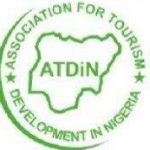- Home
- About
- Dean’s Profile
- Departments
- Other Colleges
- College of Agricultural Economics Rural Sociology And Extension
- College of Animal Science and Animal Production
- College of Crop And Soil Science
- College of Education
- College of Engineering And Engineering Technology
- College of General Studies And Communications
- College of Management Science
- College of Natural Resources And Environmental Management
- College of Natural Science
- College of Physical And Applied Science
- College of Veterinary Medicine
- Contact Us

